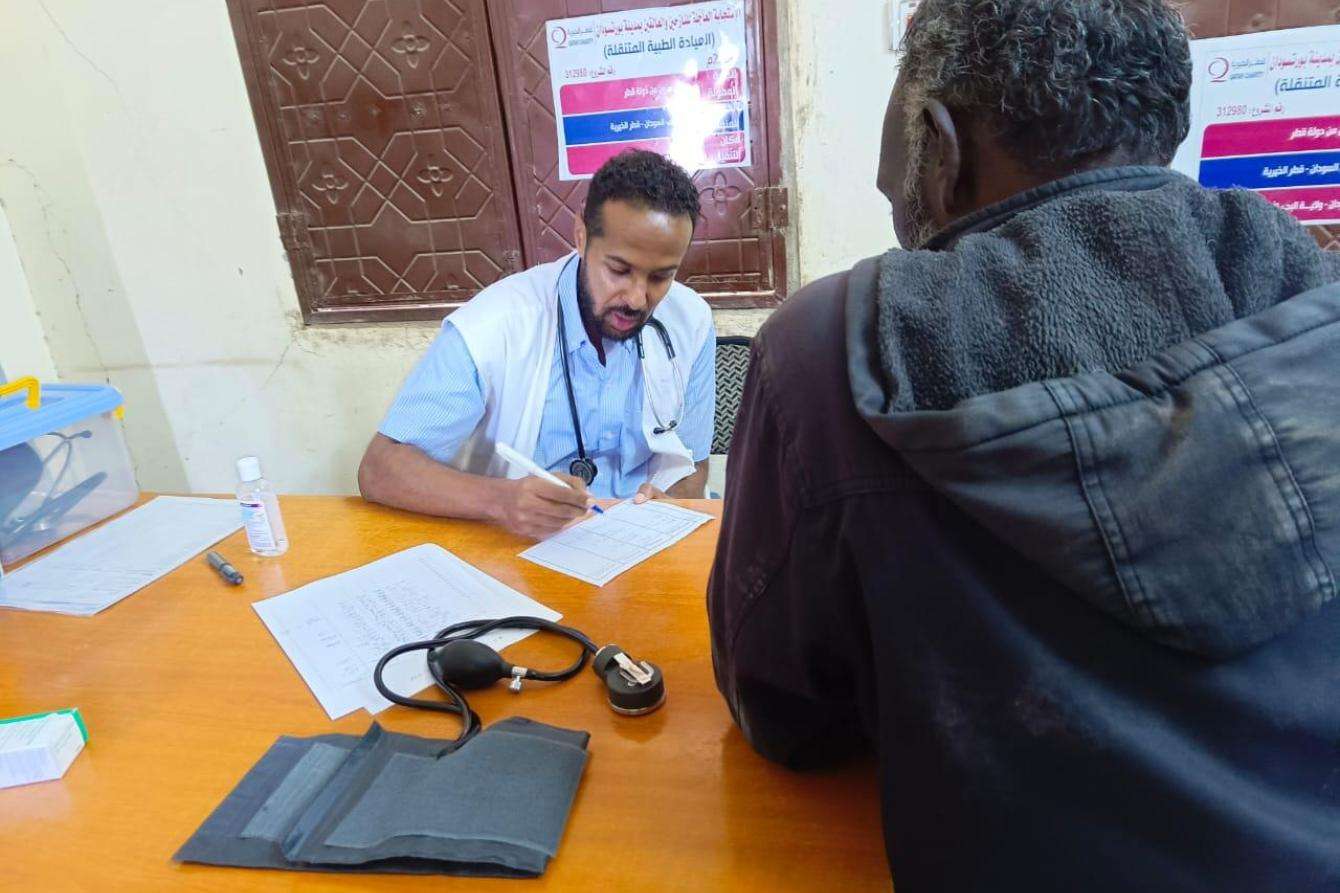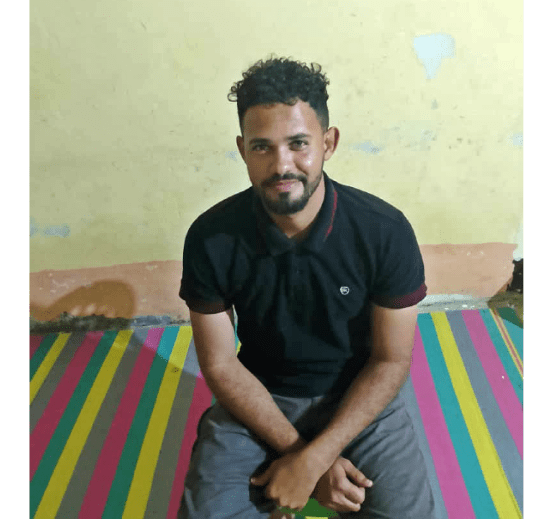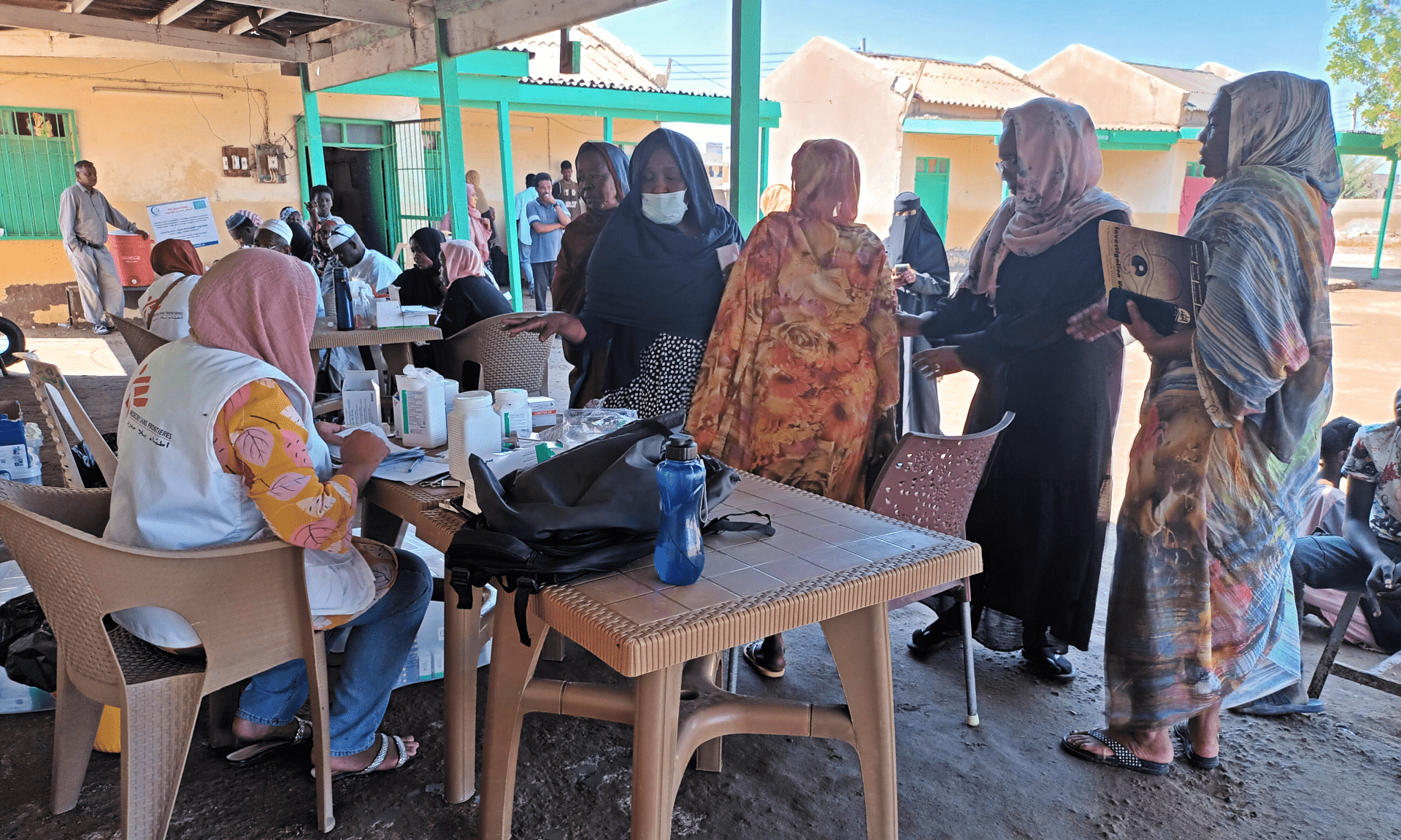They come from all over the country, including Wad Madani, where an eruption of violence in December forced more than half a million people to flee. Many of them were already displaced and had been seeking refuge in Wad Madani.
To help meet the needs of displaced people arriving in Port Sudan, Doctors Without Borders/Médecins Sans Frontières (MSF) teams initiated an emergency response in January, which will last until the end of March.

After assessing needs, MSF teams have provided support to approximately 49 sites that shelter more than 5,000 displaced people, predominantly on school premises. Schools have become a refuge for thousands of recently displaced Sudanese people, housing entire families—mothers, fathers, and children.
Among them is Hiba, a Sudanese child of primary school age. "I cannot go to school … I am sad as I am detached from places and people I had gotten used to being with,” she told an MSF health promoter. “I miss reading. I miss my friends. I am living here now and I do not understand how a school can become a home."
Our teams have focused on providing emergency medical care and hygiene while advocating for adequate water supply and food distribution from other humanitarian partners.
MSF runs mobile clinics that rotate between gathering sites, through which we have delivered a range of services including outpatient consultations, sexual and reproductive health, malnutrition screening, and surveillance of diseases with outbreak potential (such as measles, polio, malaria, dengue fever, and cholera). We also refer patients in life-threatening medical emergencies to Port Sudan Teaching Hospital. So far, we have treated about 1,300 patients in our mobile clinics.
MSF health promoter in Port Sudan
Mohamed Alaa Aldeen
“This isn't my first stop on the displacement route. I fled from Khartoum to Wad Madani, and now I find myself once again displaced in Port Sudan.
Traveling across Sudan and meeting new faces always filled me with joy, yet this displacement from one location to another is just a nightmare.
But I am trying to find meaning in my presence here in Port Sudan, so I joined MSF as a health promoter for the displaced people. As a nurse, I saw this role as an opportunity to transform the theoretical concepts of humanitarian work, which we studied at university, into practical action.

Support from within the community
A key part of MSF's response is health promotion, which is carried out with the support of community health care workers who are themselves recently displaced to Port Sudan. The health promoters have focused on hygiene promotion and health education for the prevention of communicable diseases as well as raising awareness on sexual violence.
Embracing this spirit of community engagement, MSF is working with hygienists from the internally displaced population at 11 gathering sites to set up a hygiene management committee to ensure the daily cleaning of pit latrines and the functioning of handwashing points.
More help is needed
One of the most pressing challenges faced by the displaced people is the limited access to water, coupled with insufficient support from other humanitarian organizations to meet various needs. MSF is calling on more humanitarian actors to join in supporting displaced people in Port Sudan.
Port Sudan is not the sole destination point for displaced people. There are a total of 10 million displaced people in Sudan, including about 7 million people internally displaced by the current conflict. Another 1.6 million have fled to neighboring countries over the last 10 months.




